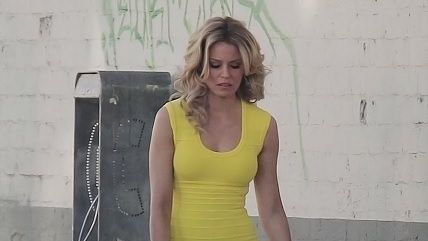Production Company Suing Elizabeth Banks Over Walk of Shame, Say She Stole Their Idea


Liberal intellectual property laws lead to all kinds of absurd claims about the "theft" of ideas. Cracked.com compiled a list of some of the most ridiculous ones, like Spike Lee's attempts to own "Spike," Games Workshop's attempt to corner "space marine," and David Letterman's NBC's attempt to corner the market on numbered lists. These are all examples of trademark claims, but the idea that an idea can be owned by someone makes for some interesting infringement claims.
One production company, Shame on You Productions, is now suing actress Elizabeth Banks, alleging she and her production company cribbed their idea for a movie about a "walk of shame." The Hollywood Reporter reports:
The suit reads: "The plot in both works [the film Walk of Shame and a film pitched by the plaintiff] follows a pretty blonde but prudent woman (a 'good girl') in her thirties living in a big city who goes through a break up with her boyfriend, commiserates with her best girlfriends (one of whom is sexual and foulmouthed), gets drunk, spends a 'one-nighter' with a younger man she just met who works as a busboy/bartender, wakes up the next morning at his place, and puts on her inappropriate outfit from the night before."
The idea's hardly one in a million but, as The Hollywood Reporter explains, the production company's claim of infringement is strengthened if their related allegation that Banks and her husband actually met with them to talk about their idea for a "walk of shame" movie because of a concept called the "inverse ratio rule," which means that "a high degree of access to the plaintiff's work may allow the plaintiff to prevail on a copyright claim with a lesser degree of similarity." If the alleged meeting did happen, it could also mean the production company could have reasonably expected payment if their pitched idea was used. These kinds of legal wrangling are part of the reason no one really accepts unsolicited manuscripts (also because they largely suck?), and contribute to the pattern by some media companies to sit on their intellectual property without expending the effort to create new works, the opposite of the intent of copyright laws, justified in the Constitution as a means to promote the progress of the arts.
